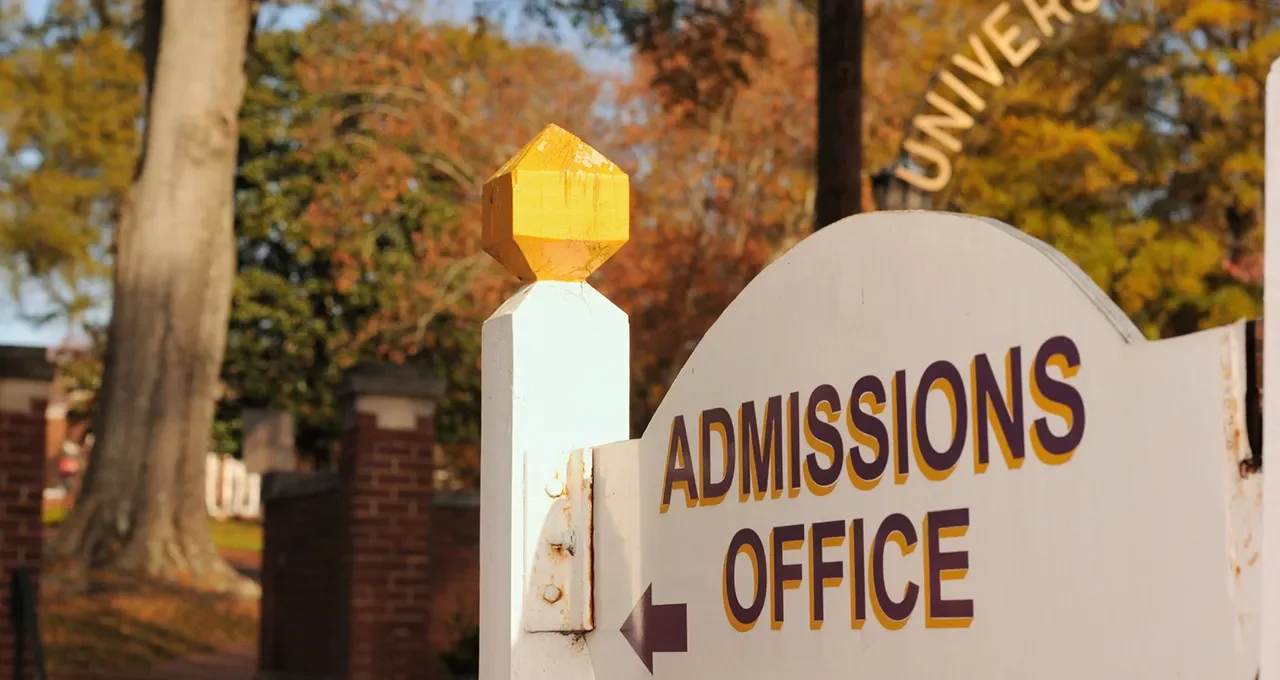Articles & Videos
Search our SAT/ACT guides, college admissions insights, academic tips, and Asked & Answered posts.
Is the SAT Required for College Admissions in 2026?
The SAT is not universally required for college admissions in 2026, but test-optional does not mean test-irrelevant. Learn when SAT scores still matter for admissions, scholarships, and academic placement.
The $5M+ Solution to Your AP Teacher Shortage (No Hiring Required)
Superintendents face an impossible math problem every year. Ivy Bound's District-Led Statewide Access flips the equation: monetize your existing teacher talent to expand AP/STEM access for Grades 6-12 and unlock millions in outside-district revenue.
Why December Is the Perfect Time to Invest in Your Student's Future
The holiday break is almost here. For many families, it's a time to relax, recharge, and step away from the daily grind of homework, tests, and early morning alarms. But what if this year, you could give your student something more than just a break? What if you could give them a competitive edge that lasts well beyond January?
When Should Students Start Thinking About the SAT?
When students should realistically start thinking about the SAT. Discover what matters most in grades 6–9 to build strong foundations, and how Ivy Bound Tutoring helps make later prep easier.
Middle School Study Habits That Lead to Success
Middle school is a turning point: students move from guided learning in elementary school to greater independence and responsibility. Strong study habits during these years lay the foundation for high school and beyond.
How to Improve Reading Comprehension in Elementary School
Elementary students practicing reading comprehension with prompts, retells, and vocabulary routines in a supportive classroom setting
ACT Advantages on Paper in 2025
In 2025, students can choose between paper and digital versions of the ACT. While digital testing may expand in the future, the paper ACT still provides clear advantages in pacing, navigation, and problem-solving. For most students, paper remains the smarter choice.
ACT Philosophies for the Modern Era of College Admissions
The ACT is more than just a test—it’s a cornerstone of college admissions strategy in 2025. These philosophies explain why colleges weigh it so heavily, how superscoring works, and why smart preparation can open doors to scholarships, selective schools, and long-term opportunities.
College Admissions in 2025: Where Tests Still Matter
Test-optional policies may be widespread, but SAT and ACT scores remain powerful tools in 2025. From selective admissions to scholarships and competitive STEM programs, strong test results can still set you apart. Discover where scores give you an edge this year.
ACT vs. SAT in 2025
Both the ACT and SAT have undergone major changes heading into 2025, with shorter test lengths, redesigned formats, and more flexible options. But which test is the better choice for you? Here’s how the ACT and SAT compare—and what to consider when deciding which one to take.
ACT Success Starts Here: Study Habits and Test Prep Tips
With the ACT rolling out a new format in 2025, students need updated strategies to succeed. From a shorter test length to an optional Science section, these changes will impact pacing, scoring, and prep methods. Here’s what you need to know—and how to adapt your study plan for the enhanced ACT.
Should You Take the ACT Science Section? Here’s How to Decide
Starting in 2025, the ACT will offer a new level of flexibility: the Science section is now optional. But should you take it? For STEM-focused students, the Science section can highlight analytical skills and boost applications. For others, skipping it may be the smarter choice. Here’s how to decide—and how Ivy Bound can help you prepare.
International Students: Don’t Be Deterred
Despite political headlines, international students should not be discouraged from pursuing higher education in the United States. As Ivy Bound Director Mark Greenstein points out, the academic, cultural, and career opportunities offered by U.S. universities remain unmatched. Leaders and policies may change, but America’s institutions continue to welcome learners from across the globe, valuing the diverse perspectives they bring.
ACT Test Changes in April 2025: What Students Need to Know
In 2024, the ACT announced they would be making a series of “enhancements” to the test in the year to come. These changes go into effect for digital test-takers in April 2025. Students opting for paper tests will see the new version of the ACT beginning in September. School-issued state and district daytime testing will begin offering the updated ACT in spring 2026.
Staying on top of test updates is the best way to know how to target your study efforts so that you’re as prepared as possible when test day rolls around..
How Schools Guide Students to the Right SAT/ACT Path
A Guide For High Schools about the best SAT & ACT practices to set their students up for success on tests and during college admissions.
Navigating The Digital SAT
The College Board SAT, a standardized test widely used for college admissions in the United States, is undergoing a significant transition from its traditional paper-based format to a digital format. Students now take the test on a computer rather than with pencil and paper. This shift to digital testing raises several important implications for students. For one, it requires them to adapt to new testing strategies and tools that may differ from what they are accustomed to with paper-based exams. Additionally, the move towards digital testing results from a broader trend towards incorporating technology into education and assessment methods.
How Do Busy Students Make Time for SAT Prep?
Many families struggle to find the EXTRA time in their teen’s day for SAT prep when they have numerous extracurricular activities and regular studies to attend to. While we don’t recommend taking away sports, band, chorus, volunteer work and paid jobs, we do suggest that students carve out time for prep. Without a clear carve-out, SAT (or ACT) prep will fall to the demands of classes, extra-curricular activities, social activities, and sleep.
Tutoring Clubs for School Subjects and SAT/ACT Prep
What is a Tutoring Club?
A tutoring club is where serious students gather to get their work done AND have a tutor’s expertise when they are stuck.
Some tutoring clubs are more pro-active – they enlist a tutor to teach a certain agenda from scratch, or review a certain subject. High School tutoring clubs allow students to get help with difficult academic work, with semi-academic work, and with standardized test prep.
Our Secret to SAT Success Revealed!
On average, our students increase their SAT scores by nearly 150 points!
What is the secret to our success rate? When it comes to the SAT, we have one simple answer to help students send the best scores to the colleges of their choice.
RUMOR: “The Revised SAT Will Be Easier”
NOBODY should be delaying an SAT based on this rumor. That’s because “easier” does not mean BETTER. An easier-for-all SAT means Revised SAT scores will be artificially higher. But colleges will be wise to that. If 1400 is easier to attain on the Revised SAT, then colleges will need 1500 to be impressed.
When the SAT was “recentered” in March 1994, high recentered scores were not as impressive as prior scores that were 100 points lower. (Recentering added 110 – 120 points to mid-range scorers.) Colleges could tell the difference, and they certainly will know the difference if the scaling is skewed next year.




















